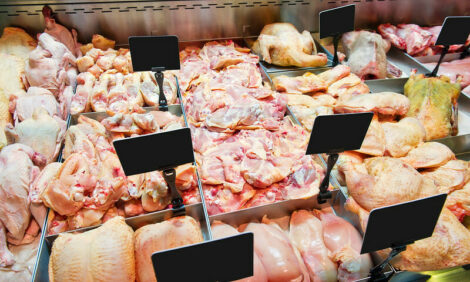



Disease focus at producer group meeting
UK - The UK pig industry would benefit from an early warning system for notifiable diseases, but retailers must also recognise thier responsibilities when importing foreign meat products.SVD in Portugal, says Ian Campbell
Swine vesicular disease has been an ongoing issue in Italy for some time but it has now reared its head in Portugal as well; I don’t know what the evidence is as to why it has arrived in Portugal but bearing in mind the flow of holidaymakers to that country during the summer months, a reminder on not bringing meat products back to the UK is in order.The ban on swill feeding shut a door that was pretty firmly closed already if the licensed operators were doing their job properly but the huge increase in hobby farmers with a few pigs, giving access to the ‘pets’ by friends and family, inadvertently poses an extra threat.
I will also take the opportunity to remind anyone thinking of buying imported breeding stock to set up good secure quarantine facilities to hold the animals; if you have any doubts about the pre-delivery test procedure, get them done yourself.
I would prefer no pigs to be imported at all but if you must then do take the right precautions.
Reports have recently been coming in of Belgian Pietrain being sold in Chelford market; whoever bought those took risk unless they were isolated in quarantine before appearing on the market. My first instinct on hearing of the sale was to deny the possibility as I had thought no producer would take such a risk.
Unofficial blood sampling could guard against another CSF outbreak
When a vet sees symptoms of a notifiable disease and alerts DEFRA, he triggers a national alarm until blood samples have been checked and the all-clear is sounded. This presents a particular problem on pig farms, because PDNS, which is commonplace, shares some symptoms with classical swine fever.A solution being proposed in Holland is to allow vets to carry out unofficial blood sampling, so they don’t have to press the panic button every time they are suspicious about symptoms.
If this approach is approved, it will overcome the problem of vets being reluctant to raise the alarm when the likelihood is that the disease is PDNS.
Such a system could bring benefits in Britain, said specialist pig vet John Mackinnon at a recent meeting of NPA Producer Group. Clearly, he said, unofficial samples would immediately become official if they proved positive for a notifiable disease.
Producer Group members felt the concept of unofficial sampling had merit. They agreed to support the Pig Veterinary Society if it put a proposition to DEFRA.
"There is always a danger that pigs are accepted as having PDNS when in fact it could be classical swine fever," said NPA’s Ian Campbell.
He reminded producers that this problem had been highlighted recently by a pan-Europe research team which had warned that farmers and vets were becoming so familiar with porcine circovirus diseases that many countries were reporting a drop in diagnostic submissions to laboratories.
NPA Producer Group also discussed the problems of MRSA in Dutch pigs.
"There is MRSA in Dutch pigs but as far as is known we haven’t got it in this country,’ said Ian Campbell. "We can test for notifiable diseases when pigs are brought into this country but it is most unlikely that anyone is testing for MRSA. Industry must think carefully about any material it brings into this country and observe quarantine procedures."
Producer Group agreed with John Mackinnon’s view that the United Kingdom would benefit from an early warning system for notifiable diseases.
Producer John Rowbottom said, ‘We must also renew our message to the supermarkets that importing meat is also importing the risk of another outbreak of classical swine fever or foot and mouth disease.’








